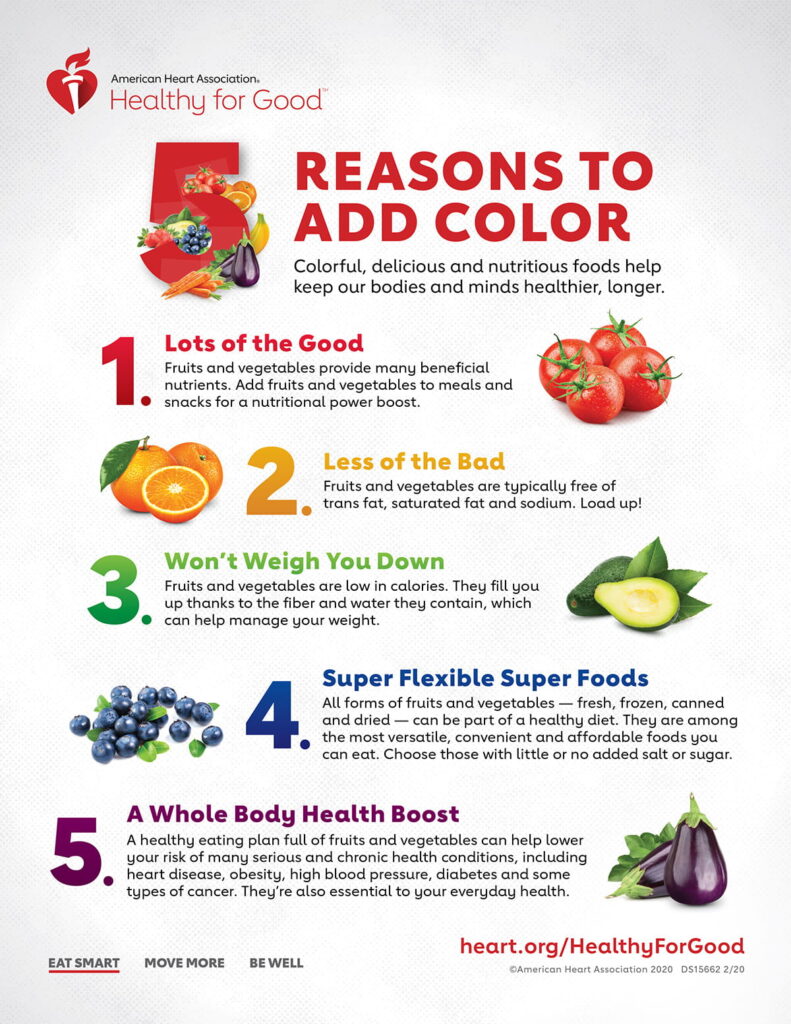Healthy Eating for a Healthy Heart
Healthy eating is essential for maintaining a healthy heart, ensuring longevity and well-being. A heart-healthy diet involves consuming nutrient-rich foods that promote cardiovascular health while avoiding excessive fats, sodium, and processed sugars intake.
By incorporating plenty of fruits, vegetables, whole grains, lean proteins, and healthy fats into your diet, you can effectively support heart health and reduce the risk of heart disease and other related conditions. Taking steps to limit the consumption of saturated and trans fats, refined carbohydrates, and sodium can further enhance the benefits of a heart-healthy eating plan.
Prioritizing portion control and mindful eating are additional strategies to promote a healthy heart and overall well-being.
Credit: www.health.harvard.edu
Understanding The Importance Of Heart Health
Eating a healthy diet plays a crucial role in maintaining a healthy heart. Adopting a heart-healthy diet can help prevent the risk factors associated with heart disease. Common risk factors for heart disease include high blood pressure, high cholesterol levels, obesity, diabetes, and smoking. By making smart food choices, you can improve your heart health.
It is essential to focus on a diet low in saturated and trans fats, cholesterol, added sugars, and sodium. Include nutrient-rich foods such as fruits, vegetables, whole grains, lean proteins, and healthy fats like avocados and nuts. These foods are low in calories and high in dietary fiber, vitamins, and minerals that can support heart health.
Avoid processed and fried foods that are high in unhealthy fats and sodium, as they can contribute to excess weight gain and increase the risk of heart disease. Increase your water intake and limit your consumption of sugary beverages.
| Heart-Healthy Foods to Include | Heart-Damaging Foods to Avoid |
|---|---|
| Fruits and vegetables | Saturated and trans fats (found in fried foods and processed snacks) |
| Whole grains | Highly processed foods (such as white bread and sugary cereals) |
| Lean proteins (chicken, fish, legumes) | Excess sodium (found in canned soups and processed meats) |
| Healthy fats (avocados, nuts) | Added sugars (sodas, candies, desserts) |
Remember that moderation and portion control are essential when caring for your heart. Monitor your daily calorie intake and aim for a balanced diet. Regular exercise, stress management, and enough sleep are vital to maintaining a healthy heart.
Essential Nutrients For A Healthy Heart
Heart-Healthy Fats: Incorporating heart-healthy fats into your diet is essential for maintaining a healthy heart. Opt for sources of monounsaturated and polyunsaturated fats, such as avocados, nuts, seeds, and olive oil. These fats can help lower harmful cholesterol levels and reduce the risk of heart disease.
Fiber-rich Foods: Including plenty of fiber in your diet is essential for promoting a healthy heart. Foods like fruits, vegetables, whole grains, and legumes are fiber-rich and can help lower cholesterol levels and improve overall heart health.
Antioxidant-rich Foods: Antioxidants play a crucial role in protecting your heart from damage caused by free radicals. Include foods such as berries, dark chocolate, green leafy vegetables, and beans in your diet to ensure an adequate intake of antioxidants.
Incorporating Healthy Eating Habits Into Your Lifestyle
When promoting heart health, incorporating healthy eating habits into your lifestyle is essential. Planning balanced meals is a critical component of maintaining a nutritious diet. Aim to include a variety of fruits, vegetables, whole grains, lean proteins, and healthy fats in your meals. These provide essential nutrients and help reduce the risk of heart disease. Additionally, prioritize innovative snacking options to satisfy hunger between meals without compromising health. Opt for fresh fruits, raw nuts, or yogurt instead of processed snacks high in sodium and unhealthy fats. Finally, managing portion sizes is crucial for maintaining a healthy weight and preventing overeating. Use smaller plates and be mindful of portion sizes to control calorie intake. Following these guidelines and making conscious choices can create a healthy eating routine that promotes a healthy heart.
Credit: www.heart.org
Frequently Asked Questions For Healthy Eating For A Healthy Heart
What Should I Be Eating For A Healthy Heart?
To maintain a healthy heart, focus on a balanced diet that includes these key components: lean proteins, whole grains, fruits and vegetables, and healthy fats like nuts and olive oil. Avoid processed foods, excessive sodium, and sugary drinks. Regular exercise and moderation in alcohol consumption are also crucial for heart health.
How Do I Start Eating Healthy For My Heart?
To start eating healthy for your heart, follow these guidelines: 1. Choose lean proteins and limit red meat intake. 2. Opt for whole grains instead of refined grains. 3. Include a variety of fruits and vegetables in your diet. 4. Limit unhealthy fats and opt for healthier fats like those in nuts and avocados.
5. Reduce sodium intake by avoiding processed foods and using low-sodium options.
What Is A Good Suggestion For Heart-healthy Eating?
A good suggestion for heart-healthy eating is to focus on a balanced diet with plenty of fruits, vegetables, whole grains, lean proteins, and healthy fats. Avoid processed foods, sugary drinks, and excessive salt. Regular exercise and maintaining a healthy weight are also crucial for heart health.
What Are The Three Foods That Heal Your Heart?
The three foods that heal your heart are fatty fish like salmon, nuts like almonds and walnuts, and berries like strawberries and blueberries.
Conclusion
Maintaining a healthy heart through a nutritious diet is crucial to overall well-being. We can fuel our bodies and protect our hearts from diseases by incorporating nutrient-rich foods such as fruits, vegetables, whole grains, lean proteins, and healthy fats into our daily meals.
Prioritizing healthy eating habits, practicing portion control, and staying physically active contribute to a healthier heart and a happier life. Start making small, sustainable changes today and reap the long-term benefits for your heart health.

